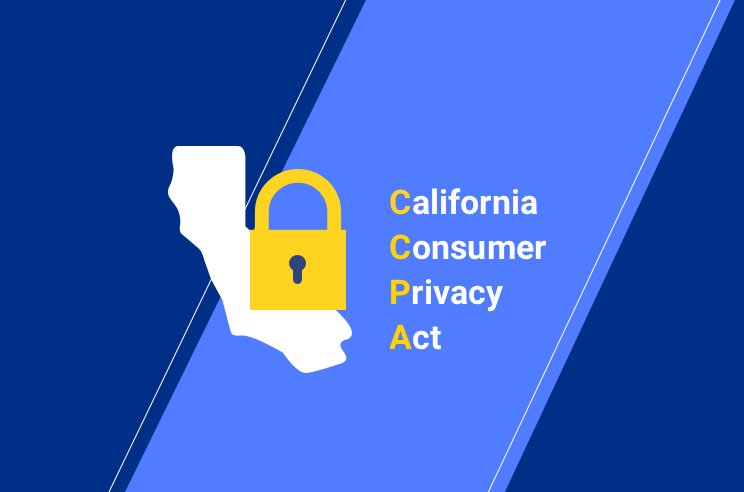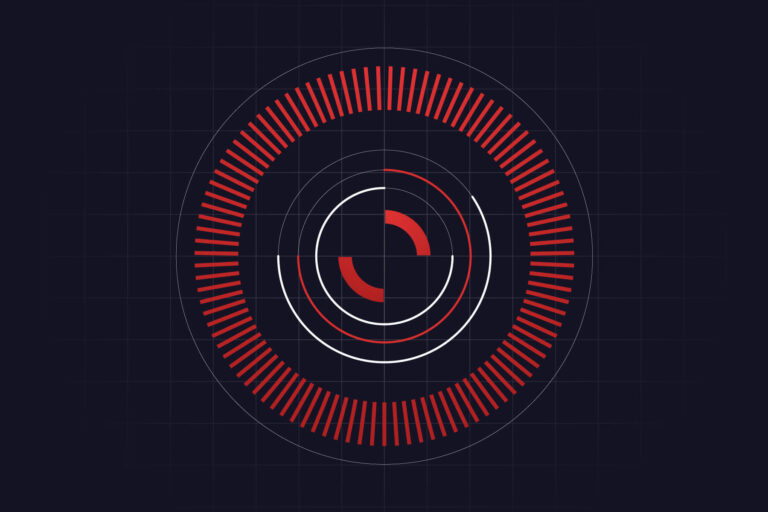Overview
The California Consumer Privacy Act (CCPA) was enacted in 2018 to give California consumers greater control over their personal information and to increase transparency and accountability of businesses that collect, store, and use that information.
The CCPA was created in response to growing concerns about privacy in the digital age, where large amounts of personal information are collected, stored, and used by businesses for a variety of purposes, including targeted advertising, market research, and risk assessment.
The CCPA gives California consumers the right to know what personal information is being collected about them, the right to request that their personal information be deleted, and the right to opt-out of the sale of their personal information. The CCPA also requires businesses to implement reasonable security measures to protect consumers’ personal information, and to provide certain notifications in the event of a data breach.
The CCPA is designed to increase transparency and accountability of businesses and to give California consumers greater control over their personal information. It is an important step towards ensuring the privacy and protection of personal information in the digital age.
NOTE: Starting in January 2023, regulations protecting consumer data privacy are set to expand throughout the United States. In addition to the CCPA/CPRA, four other states will join California with new privacy laws including the Colorado Privacy Act, Connecticut Data Protection Act, Utah Consumer Privacy Act, and Virginia Consumer Data Protection Act.
Who does the CCPA affect?
The California Consumer Privacy Act (CCPA) affects any business that collects, stores, or uses the personal information of California consumers. This includes companies of any size that do business in California, regardless of where the business is located.
The CCPA applies to businesses that meet one or more of the following criteria:
- Have annual gross revenues in excess of $25 million
- Buy, receive, sell, or share personal information of 50,000 or more consumers, households, or devices
- Derive 50% or more of their annual revenues from selling consumers’ personal information
If a business meets any of these criteria, it must comply with the CCPA, which gives California consumers certain rights with respect to their personal information, including the right to know what personal information is being collected about them, the right to request that their personal information be deleted, and the right to opt-out of the sale of their personal information.
What are the CCPA Requirements?
The California Consumer Privacy Act (CCPA) imposes several requirements on businesses that collect, store, or use the personal information of California consumers. The key requirements of the CCPA include:
- Notice of Collection: Businesses must provide consumers with notice of the categories of personal information that are being collected and the purposes for which the information will be used. This notice can be provided through a privacy policy, a pop-up window, or a separate notice.
- Right to Know: Consumers have the right to request information about what personal information is being collected about them, including the categories of information collected and the sources of that information.
- Right to Delete: Consumers have the right to request that their personal information be deleted, subject to certain exceptions.
- Opt-Out of Sale: Consumers have the right to opt-out of the sale of their personal information. Businesses must provide a clear and conspicuous “Do Not Sell My Personal Information” link on their websites.
- Data Security: Businesses must implement and maintain reasonable security measures to protect consumers’ personal information from unauthorized access, use, or disclosure.
- Data Breach Notification: In the event of a data breach, businesses must provide notice to affected consumers and the California Attorney General within a certain timeframe.
- Employee Training: Businesses must train their employees on the requirements of the CCPA and on the policies and procedures that have been implemented to comply with the law.
- Third-Party Contracts: Businesses must include provisions in their contracts with third-party service providers that require the service providers to comply with the CCPA and to maintain the security of consumers’ personal information.
- Record Keeping: Businesses must keep records of their CCPA compliance activities, including the number of consumer requests received and how those requests were handled.
These are the key requirements of the CCPA, but the law also contains several other provisions that businesses must comply with. It’s important to consult with legal counsel to ensure that your business is fully compliant with the CCPA.
How is CCPA Compliance Enforced?
The California Consumer Privacy Act (CCPA) is enforced by the California Attorney General, who has the authority to bring enforcement actions against businesses that violate the law. The CCPA provides for civil penalties of up to $7,500 per violation, and the California Attorney General can seek additional remedies, including injunctions and restitution, to address violations of the law.
In addition, the CCPA also provides for private rights of action, which means that consumers can bring lawsuits against businesses for certain violations of the law. For example, if a business fails to implement reasonable security measures to protect consumers’ personal information, a consumer can bring a lawsuit seeking damages for any harm suffered as a result of the breach.
Enforcement of the CCPA is ongoing, and the California Attorney General has already taken enforcement actions against several businesses for violating the law. To avoid enforcement actions and lawsuits, it’s important for businesses to ensure that they are fully compliant with the CCPA and to consult with legal counsel if they have any questions or concerns.
What are the Real World CCPA Penalties?
The California Consumer Privacy Act (CCPA) provides for civil penalties of up to $7,500 per violation for businesses that violate the law. However, the amount of the penalty will depend on several factors, including the severity of the violation and the number of consumers affected.
In addition to civil penalties, the California Attorney General can also seek other remedies, such as injunctions and restitution, to address violations of the CCPA. For example, the Attorney General may seek an injunction to stop a business from continuing to violate the law, or to require a business to implement specific measures to ensure that it is in compliance with the CCPA. The Attorney General may also seek restitution for consumers who have suffered harm as a result of a violation of the law.
Private rights of action are also provided for under the CCPA, meaning that consumers can bring lawsuits against businesses for certain violations of the law. For example, if a business fails to implement reasonable security measures to protect consumers’ personal information, a consumer can bring a lawsuit seeking damages for any harm suffered as a result of the breach.
In practice, the amount of the penalties and damages that businesses face for violating the CCPA can vary widely depending on the specific circumstances of each case. However, the CCPA is an evolving area of law, and penalties and damages awarded in cases brought under the CCPA are likely to become more consistent over time as more cases are brought and more guidance is provided by the courts.
Does the CCPA apply to any specific industries?
The California Consumer Privacy Act (CCPA) applies to all businesses that operate in California and meet certain requirements, regardless of their industry.
However, the CCPA provides some specific exemptions for certain types of businesses, including:
- Businesses that are subject to other privacy laws: Businesses that are subject to the federal Health Insurance Portability and Accountability Act (HIPAA) or the Fair Credit Reporting Act (FCRA) are exempt from certain provisions of the CCPA.
- Nonprofit organizations: Certain nonprofit organizations are exempt from certain provisions of the CCPA.
- State and local government agencies: State and local government agencies are exempt from the CCPA, but they must comply with other privacy laws, such as the California Information Practices Act.
- Financial institutions: Certain financial institutions are subject to the CCPA, but they are also subject to the federal Gramm-Leach-Bliley Act (GLBA), which provides a higher level of privacy protection for consumers.
Overall, while the CCPA applies to all businesses that operate in California and meet certain requirements, some businesses may be exempt from certain provisions of the law due to their specific industry or because they are subject to other privacy laws. Businesses should consult with legal counsel to determine whether they are subject to the CCPA and what obligations they have under the law.
What data does the CCPA cover?
The California Consumer Privacy Act (CCPA) applies to “personal information” of California residents. “Personal information” is defined broadly under the CCPA to include a wide range of information, including:
- Identifiers such as a real name, alias, postal address, unique personal identifier, online identifier, Internet Protocol address, email address, account name, social security number, driver’s license number, passport number, or other similar identifiers.
- Characteristics of protected classifications under California or federal law, such as race, religious creed, color, national origin, ancestry, physical disability, mental disability, medical condition, marital status, sex, age, or sexual orientation.
- Commercial information, such as records of products or services purchased, obtained, or considered, or other purchasing or consuming histories or tendencies.
- Biometric information, such as fingerprints, facial recognition data, and other biometric data used to authenticate a consumer.
- Internet or other similar network activity, such as browsing history, search history, and information regarding a consumer’s interaction with an Internet Web site, application, or advertisement.
- Geolocation data, such as a consumer’s physical location or movements.
- Audio, electronic, visual, thermal, olfactory, or similar information, such as photographs, videos, and recordings.
- Professional or employment-related information, such as a consumer’s job history or performance evaluations.
- Education information, such as academic records and transcripts.
The CCPA applies to personal information that is collected, used, or disclosed by businesses, regardless of whether the information is collected online or offline, or stored in electronic or physical form. The CCPA also applies to personal information that is collected by businesses from sources other than the consumer, such as from publicly available records.
What happens if my company is not in compliance with the CCPA?
If a company is found to be not in compliance with the California Consumer Privacy Act (CCPA), there can be significant consequences, including fines, legal action, and damage to the company’s reputation.
- Fines: The CCPA provides for civil penalties of up to $2,500 for each violation and up to $7,500 for each intentional violation.
- Legal Action: Consumers and the California Attorney General have the right to bring a private right of action against companies that suffer a data breach as a result of the company’s noncompliance with the CCPA’s data security requirements.
- Damage to Reputation: Companies that are found to be noncompliant with the CCPA may face significant damage to their reputation, which can impact their ability to attract and retain customers and employees.
It is important to note that noncompliance with the CCPA can also result in the loss of trust from customers, which can negatively impact a company’s business operations and financial performance.
Therefore, it is important for companies to take the CCPA seriously and take steps to ensure that they are in compliance with the law, including conducting regular assessments of their data privacy and security practices and consulting with legal counsel and privacy professionals as needed.
What does the CCPA define as Sale of Data?
Under the California Consumer Privacy Act (CCPA), the term “sale of personal information” is defined broadly and includes a wide range of business practices that involve the exchange of personal information for valuable consideration.
According to the CCPA, a “sale” of personal information occurs when a business:
- Sells, rents, releases, discloses, disseminates, makes available, transfers, or otherwise communicates orally, in writing, or by electronic or other means, a consumer’s personal information by the business to another business or a third party for monetary or other valuable consideration.
- Otherwise benefits, including monetary or other benefits, received by the business from the exchange of consumer personal information.
It is important to note that the definition of “sale of personal information” under the CCPA is different from the traditional definition of a sale, and it may include practices that are commonly considered to be sharing or exchanging information rather than selling it. For example, the sharing of personal information with third-party service providers or advertising networks may be considered a sale under the CCPA if it is done in exchange for valuable consideration.
Businesses should consult with legal counsel to determine whether their practices involving the exchange of personal information may be considered a sale under the CCPA and what obligations they have under the law with respect to such practices.
CCPA compliance checklist:
- Conduct a Data Audit: Review what personal information is being collected, stored, and used by your business, and determine what rights consumers have with respect to that information.
- Update Privacy Policy: Update your privacy policy to include specific information about the personal information that is being collected, the sources of that information, the purposes for which it will be used, and the rights of California consumers with respect to their personal information.
- Provide Notice of Collection: Provide consumers with notice of the categories of personal information that are being collected and the purposes for which the information will be used. This notice can be provided through a privacy policy, a pop-up window, or a separate notice.
- Implement Right to Know Process: Develop and implement a process for responding to consumer requests to know what personal information is being collected about them.
- Implement Right to Delete Process: Develop and implement a process for responding to consumer requests to delete their personal information, subject to certain exceptions.
- Provide Opt-Out of Sale Link: Provide a clear and conspicuous “Do Not Sell My Personal Information” link on your website and in your privacy policy.
- Implement Data Security Measures: Implement and maintain reasonable security measures to protect consumers’ personal information from unauthorized access, use, or disclosure.
- Prepare Data Breach Response Plan: Develop and implement a plan for responding to data breaches, including providing notice to affected consumers and the California Attorney General within a certain time frame.
- Train Employees: Train employees on the requirements of the CCPA and on the policies and procedures that have been implemented to comply with the law.
- Review Third-Party Contracts: Review contracts with third-party service providers to ensure that they include provisions requiring the service providers to comply with the CCPA and to maintain the security of consumers’ personal information.
- Keep Records: Keep records of your CCPA compliance activities, including the number of consumer requests received and how those requests were handled.
This CCPA compliance checklist is a general guide, and your business may have additional requirements based on the specific personal information that is being collected, stored, and used. It’s important to consult with legal counsel to ensure that your business is fully compliant with the CCPA.
Sample CCPA policies list:
- Privacy Policy: A clear and concise privacy policy that outlines the types of personal information collected, how it is used, and with whom it is shared. The policy should also explain consumers’ rights under the CCPA, such as the right to request access to their personal information, the right to request deletion of their personal information, and the right to opt-out of the sale of their personal information.
- Data Collection Policy: A policy that explains the circumstances under which personal information is collected and the types of information that are collected.
- Data Retention Policy: A policy that outlines the length of time that personal information is kept, and the circumstances under which it is deleted.
- Data Security Policy: A policy that outlines the measures taken to protect personal information from unauthorized access, use, or disclosure.
- Employee Training Policy: A policy that outlines the training provided to employees on the CCPA and their obligations under the law.
- Verification Policy: A policy that explains the procedures used to verify the identity of consumers who make requests under the CCPA.
- Record Keeping Policy: A policy that outlines the procedures for keeping records of consumer requests and how they are handled.
- Audit Policy: A policy that outlines the procedures for conducting regular audits to ensure ongoing compliance with the CCPA.
Having these policies in place is an important step in demonstrating compliance with the CCPA and protecting consumers’ personal information. It’s important to note that the exact policies that a business needs may vary depending on the size and complexity of the business, but the goal is to be transparent about the data practices and to protect consumers’ privacy rights. At Prodigy 13 we can help you craft custom policies based on your business profile, size and exposure to CCPA, for more information please review our Managed and Assisted compliance services.
Can I achieve CCPA compliance on my own?
Achieving compliance with the California Consumer Privacy Act (CCPA) can be a complex process that involves understanding the requirements of the law, developing and implementing policies and procedures, and training employees. Depending on the size and complexity of a business, it may be challenging for a single person to achieve full CCPA compliance on their own.
However, if you have a small business with limited resources and personal data collection, you may be able to achieve compliance on your own with some effort. The following steps can help:
- Review the CCPA requirements: Read the CCPA law and regulations carefully to understand what it requires of businesses and what personal information is protected.
- Inventory your data: Conduct an inventory of the personal information you collect, store, and use, and determine the sources of that information.
- Develop privacy policies: Develop policies and procedures to ensure that you are complying with the CCPA, including policies for responding to consumer requests, protecting personal information, and training employees.
- Update your privacy notice: Review and update your privacy notice to ensure that it complies with the CCPA, including information about the types of personal information you collect, how it is used, and the rights of consumers.
- Train employees: Train employees on the CCPA requirements and their responsibilities under the law.
- Monitor changes: Stay informed about changes to the CCPA and other privacy laws, and make any necessary updates to your policies and procedures to ensure ongoing compliance.
It is important to note that the CCPA is a complex law, and there may be additional requirements or nuances that apply to your business specifically. In such cases, it may be beneficial to seek the assistance of a privacy professional or legal counsel to ensure that you are fully compliant with the law.
What’s the difference between GDPR and CCPA?
The General Data Protection Regulation (GDPR) and the California Consumer Privacy Act (CCPA) are two different privacy laws that regulate the collection, storage, and use of personal data. While both laws have similar objectives of protecting consumer privacy, there are some key differences between the two.
- Jurisdiction: The GDPR applies to all companies operating in the European Union (EU), while the CCPA applies only to companies that do business in California and meet certain requirements.
- Scope: The GDPR applies to all personal data, regardless of the type of data or the method used to collect it. The CCPA applies only to certain types of personal information, such as name, address, and Social Security number, and does not apply to all types of data.
- Rights of Consumers: Both the GDPR and CCPA provide consumers with certain rights with respect to their personal data, such as the right to access, the right to delete, and the right to opt-out of the sale of their data. However, the GDPR provides more extensive rights for consumers, including the right to data portability, the right to object, and the right to be forgotten.
- Penalties: Both the GDPR and CCPA provide for penalties for non-compliance, but the penalties under the GDPR are more severe, with fines up to 4% of a company’s global annual revenue or €20 million, whichever is greater. The CCPA provides for civil penalties of up to $7,500 per violation.
- Enforcement: The GDPR is enforced by data protection authorities in each EU member state, while the CCPA is enforced by the California Attorney General.
Both the GDPR and CCPA are designed to protect consumer privacy, they differ in their scope, jurisdiction, and the rights they provide to consumers. Businesses operating in both the EU and California must comply with both laws to ensure that they are fully compliant with all relevant privacy regulations.
At Prodigy 13 we can help you achieve 100% compliance with CCPA and GDPR, for more information and for a free compliance assessment please review our Managed and Assisted compliance services.



